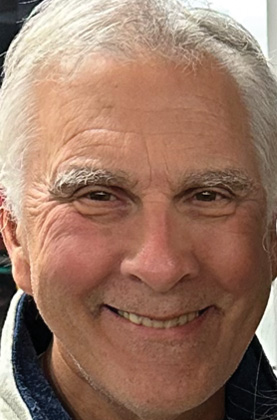
On April 10, the House of Representatives passed the Safeguard American Voter Eligibility Act, or “SAVE Act” which would require you to present, in person, valid forms of documentary proof of U.S. citizenship which include a U.S. passport, a Real ID-compliant ID such as an enhanced drivers license (which requires a birth certificate), a government-issued photo ID showing the U.S. as your birthplace, or a U.S. military ID if shown alongside a military record of service showing the U.S. as your birthplace. The requirements would apply when registering to vote for the first time or when updating your registration (such as if you change your last name when getting married or move to a new address). They would also apply if you have been dropped from the voter registration files for any reason.
The bill now goes to the Senate where Republicans, with a 53-47 majority, would need bipartisan support to overcome the 60-vote threshold to send it to President Trump to sign into law.
Sounds reasonable, right? But if the SAVE Act passes as currently written, as many as 69 million women who changed their name after they were married or divorced would face significant difficulties registering to vote. That is because their married name would not match the name on their birth certificate. In addition, the requirement to register in person would make it impossible for troops serving overseas and Americans living abroad to be put on voter rolls.
Rep. Chip Roy (R-Texas), who introduced the bill, said that the act is “being attacked because the policy is wildly popular with the American people, its opponents want and need illegals to vote, and they’ll use anything they can to attack it.”
But voter fraud remains a very rare occurrence across the country.
“Research has been consistent over time that voter fraud is infinitesimally rare and almost never occurs on a scale that would affect an election outcome,” said Alice Clapman, senior counsel for voting rights at the Brennan Center for Justice, which advocates for expanded voter access.
Roy argues that the SAVE Act would allow each state to make their own exceptions for aspects of the law. That would mean that each state could develop their own voter registration requirements, which could differ from state to state. But it’s important to note that the bill does not include any federal money for state electoral facilities, making it harder for states to implement their own laws that are built around the SAVE Act.
An amendment was proposed by Rep. Maxine Dexter (D-Oregon) that would have required additional research to ensure the requirements would not disenfranchise millions of voters. House Republicans voted it down.
It has been suggested that if you don’t have your birth certificate, you can use a passport. But you need your birth certificate to get a passport. Anyway, in a recent Bedford Township town hall meeting, Tim Walberg, our congressional representative, was asked about people who can’t afford a passport and replied “well, then they shouldn’t be voting.” His statement made the national news! Walberg later tried to walk back his statement. He might have spoken out of frustration because of all the people at the town hall were voicing their anger over the bill, but he said what he said, and his statement was dismissive of his constituents.
After Trump lost in 2020, there were 62 lawsuits filed contesting the election. All were ultimately dropped, dismissed, or resolved in favor of the election being legitimate — many by Trump-appointed judges.
I’m not saying that as a country, we shouldn’t protect our voting process. We should. Our Constitution and a host of federal laws already protect our right to vote; and they work. Sixty-two courts have already said they do.
If the people of this country support changes in the current voting laws and Congress passes laws that do not disenfranchise American voters, so be it. But the SAVE Act as currently written goes too far.
Mitch Myers lives in Adrian.

